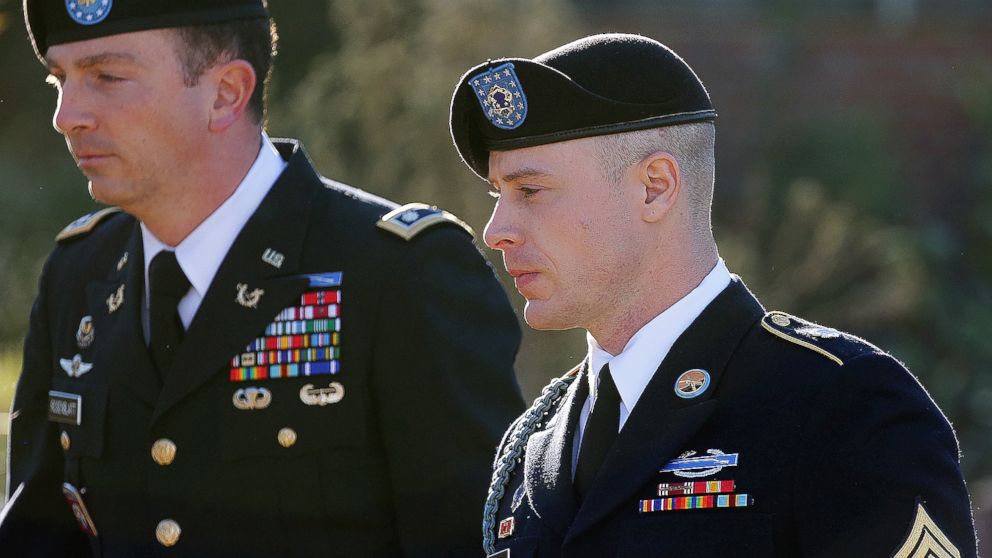Classified Information at Center of Latest Bowe Bergdahl Hearing
Bergdahl faces charges of desertion and misbehavior before the enemy.

— -- The key issues at this morning’s pretrial hearing relating to charges against Army Sergeant Bowe Bergdahl were access to over 300,000 pages of classified information and witnesses who could disclose classified information.
Bergdahl faces an Army court-martial on charges of desertion and misbehavior before the enemy after he allegedly deserted his unit in 2009 and was then held captive by the Taliban for five years. If Bergdahl is convicted of misbehavior before the enemy, he could face a life sentence. The desertion charge carries a maximum five-year sentence.
In a hearing at Fort Bragg, North Carolina, the defense and government counsel argued over how much access the defense should have to Department of Defense computers and search engines, classified documents and witnesses who may disclose classified information.
“The guy who has the most need to know this information has the least access to it,” said defense lawyer Lt. Col. Frank Rosenblatt.
The defense argues that without the ability to freely conduct witness interviews and gather evidence, its ability to adequately prepare Bergdahl for trial would be severely impacted. But the prosecution, led by Captain Michael Petrusic, is concerned about the protection of such information. In particular, the prosecution mentioned four individuals who have already made public statements and unauthorized disclosures of classified information pertaining to Bergdahl’s case.
Defense counsel Rosenblatt also raised the issue that Bergdahl has not been awarded the Purple Heart, the NATO medal, the POW Ribbon and the Afghanistan Campaign Medal -- medals that the defense feels Bergdahl deserves. Rosenblatt said the absence of these medals “casts a shadow of guilt” on his client.
Bergdahl’s civilian lawyer, Eugene Fidell, was not present at the hearing. Fidell’s security clearance for classified information has not yet been granted and was another issue raised this morning.
The defense emphasized a few times that it intends to release as many documents to the public as possible. “We intend to press for Sgt. Bergdahl’s 6th amendment rights to a public trial,” said Lt. Col. Rosenblatt. In particular, Rosenblatt mentioned the defense’s intention to release a 371-page interview between Bergdahl and Maj. Gen. Kenneth Dahl, who led the Army’s investigation into Bergdahl’s actions, and who felt jail time for Bergdahl would be “inappropriate.” Release of that document and other information depends on the judge’s ruling on the treatment of classified information in this case.
The judge who oversaw the hearing, and who will ultimately issue the protective order governing the handling of classified information, was Col. Jeffrey R. Nance. This was the first time Nance has presided over the case. Bergdahl’s defense raised no objection to Nance’s appointment but did ask how much Nance knew about the case prior to the hearing this morning, and why the change in judge had been made. Nance said he knows little about the case outside of having seen news reports that Bergdahl had been freed in a prisoner swap and that the change had been made for scheduling reasons.




